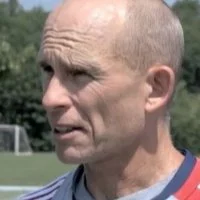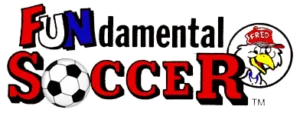Predict outcomes / anticipation – Practice moving early, anticipating likely outcomes, basing your decisions on visual cues (ex: in an arial dual between your teammate and an opponent, can you determine who has the advantage and can you move in the direction of where the ball will likely fall before contact is made?). How about spin on the ball? If the ball is spinning rapidly, which way will it bounce when it hits the turf? Be proactive, not reactionary. For center backs, it’s obvious when the opponent will play over your line, so read serve and drop off early to avoid a horse race!
Make things difficult for your opponent – When you’re on the ball, and you’re seemingly out of options, can you come up with an action that makes the moment more difficult for your opponent(s)? An example would be when you feel like good possession is not likely with any of your options, so you lift the ball over your opponent’s back line, making their defenders face their own goal, temporarily giving them a moment of discomfort.
Take mental notes of your opponent – you can get a pretty good idea about your direct opponent early in the game if you pay attention. Right foot or left? (you can tell by what foot they dribble with). Notice patterns of when they struggle. What don’t they like? What are they good at? Do you feel like you are adapting your game to them, or they to you?
Playing conditions, weather, and pitch surfaces – take advantage of your warm up time to get a good feel for the playing conditions. Many games are played on synthetic turf these days, and not all turfs are created equal. Some play fast. Some play slower. Rain and wind are obvious factors, too. Don’t let the game start and then learn about the pitch’s characteristics on the fly. Games are 70, 80, or 90 minutes and you have no time to waste learning about something that could have been learned in warm up.
This segment is taken from the unique book “Appetite For Soccer – Jumping Levels In The Game By Design” written by Tony Kees for Parents and Ambitious Soccer Players 12-16 Years of Age.
 Tony Kees is currently an Academy staff coach at Sockers FC Chicago, and formerly the Assistant Academy Director at Chicago Fire. Tony holds several licenses, including USSF ‘A’ and NSCAA Premiere Diploma.
Tony Kees is currently an Academy staff coach at Sockers FC Chicago, and formerly the Assistant Academy Director at Chicago Fire. Tony holds several licenses, including USSF ‘A’ and NSCAA Premiere Diploma.




